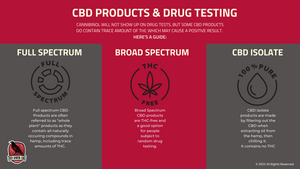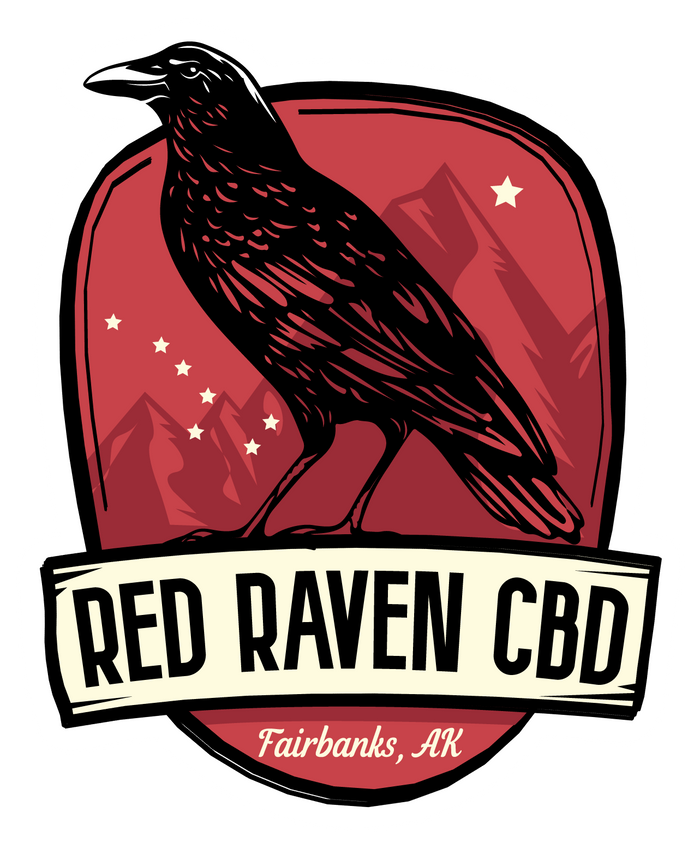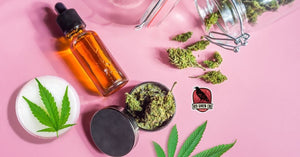Much of the information that can be found online relating to CBD oil is questionable or downright false, but one of the questions we here at Red Raven CBD receive most often relates to the difference between CBD and THC. There are, in fact, many differences between CBD oil which is primarily derived from hemp and CBD oil which can be sourced from THC rich marijuana plants. Most of the differences between the two stem from the plant which each is harvested from. Though the two compounds are very similar on a chemical level, there are distinct differences that can affect whether or not a person who consumes them feels high.
In order to better understand the effects on your body of compounds like THC and CBD, it is important to first know the differences between cannabis, hemp and marijuana.
What is Cannabis?
Cannabis is an annual herbaceous plant with two primary classifications: Indica and Sativa. Both Marijuana and hemp are member of the Cannabis genus but hemp only belongs to the Cannabis Sativa species while marijuana can be a member of either Cannabis Indica or Cannabis Sativa. Marijuana and hemp share certain properties because the come from the same species of plant but that doesn't mean the marijuana and hemp are the same thing. There are distinct and important differences between the two plants.
What is Hemp?
Hemp is the variety of Cannabis Sativa which is primarily harvested commercially for the seeds, stalks and flowers. Most hemp plants are grown and harvested outdoors because they are sturdy and grow rather tall- oftentimes up to 6 to 9 feet in height.
Different parts of the hemp plant are harvested for different purposes:
- Hemp seeds can be used for food and cosmetics.
- Stalks are used for their fiber and can be utilized in building materials, clothing and ropes.
- The flowering part of the plant is used for cannabinoid properties and is used to create CBD oil. This CBD oil that is THC free is the primary derivative of these hemp flowers.
Hemp comes with high concentration of cannabidiol (CBD), the non-psychoactive cannabinoid, but almost no THC. This type of CBD is the most popular among consumers who are worried about any peripheral THC effects or need to be drug tested for work.
Hemp, unlike marijuana, has been excluded from the Controlled Substances Act with the introduction of the 2018 Farm Bill. Because of the looser regulations on hemp prescribed in the bill, hemp can now be grown and manufactured in the United States for the production and sale of CBD.

What is Marijuana?
Marijuana is a cannabis plant that is harvested for the euphoric, relaxing and psychoactive effects created because of the higher concentration of THC. In contrast to hemp, the only parts of the marijuana plant that are useful are the highly resinous flowers which contain an abundance of cannabinoids. The seeds, stalks and flowers of marijuana have no commercial value. Marijuana can have up to 30% THC per dry weight which means that it is classified as a Schedule 1 substance under the Controlled Substances Act of 1970.
There are states which have begun to legalize the use of marijuana for medicinal or recreational purposes. The majority of states in the United States still consider recreational use of marijuana illegal. Since 2014, however, Alaska has allowed both medicinal use of marijuana as well as recreational use. While the higher concentration THC in marijuana is legal in some areas of the country, there are many consumers who are still wary of the effects of marijuana and prefer the results of a cannabinoid like CBD which does not cause a high.
Not all CBD Oils are Created Equal
On the molecular level, CBD is the same compound regardless of whether it is found in high-THC or low-THC cannabis plants. There are, however, many differences between CBD products, depending on where the CBD is sourced.
CBD Oil Made from Hemp vs. Marijuana: What is the Difference?
Because, as we discussed earlier, there is no molecular difference between CBD sourced from hemp and CBD sourced from marijuana, it can be hard to tell the difference between the two products. There are a few distinct differences, and here is a breakdown:
1. Cannabinoid Content
There are both full-spectrum CBD and THC free extracts on the consumer market now. The main difference between CBD oil from hemp and CBD oil from marijuana is the ratio between the THC and CBD. Hemp-derived CBD oil usually contains high concentrations of CBD, but its THC content doesn't exceed the legal 0.3% limit prescribed by the government. Marijuana derived oils can have a anywhere from 5% to 30% THC, which can certainly lead to psychoactive results. There are even some products sold as CBD which contain equal concentration of CBD and THC.
2. Effect Profiles
Because of the low THC content in hemp-sourced CBD oil, there are no intoxicating effects on the consumer. CBD doesn't initiate a psychoactive response so you won't get high off of hemp derived CBD oil. You may feel relaxed, more alert, free from pain and inflammation or mental discomfort because of the way CBD works on the endocannabinoid system. By contrast, using CBD derived from marijuana with a higher concentration of THC, you may reap the same benefits but along with the positive health effects a high is also likely.
3. Uses
Full-spectrum CBD hemp oils are labeled as dietary supplements and can be found among other over the counter products in pharmacies, health stores, headshops, vape shops and specialty stores across the country. The main purpose of using CBD hemp oil is to restore the chemical balance in the body by stimulating the human endocannabinoid system and enhance the overall quality of one's life. As for marijuana-derived CBD oils that carry a high concentration of THC, you can find them only in medical or recreational dispensaries in the states where they are legal

Is CBD from Hemp or Marijuana Right for Me?
It depends on the intended use, and any additional risk you may need to consider like drug testing at your job. The human body doesn't care where the cannabinoid is sourced from, but when choosing a CBD product it is always a good idea to consider the other compounds which may be included in the oil or tincture.
The ratio between THC, the addition of terpenes (the aromatic compounds in all plants) and cannabidiol all play a huge part in how an oil will effect your body and mind. Some researchers claim that CBD and THC in a product is the ideal for effectiveness in a CBD oil, but that theory has yet to be tested thoroughly. There is however statistical data to support the fact that some THC in conjunction with CBD does provide the most effective and beneficial results.
That said, there are many different options on the market that provide all ranges of CBD and THC. Though they are two very different products, they do come from the same plant and when combined in small doses can lead to extremely positive physical and mental effects. By knowing more about the relationship between CBD and THC you can make a well informed decision about what product is best for your needs.


